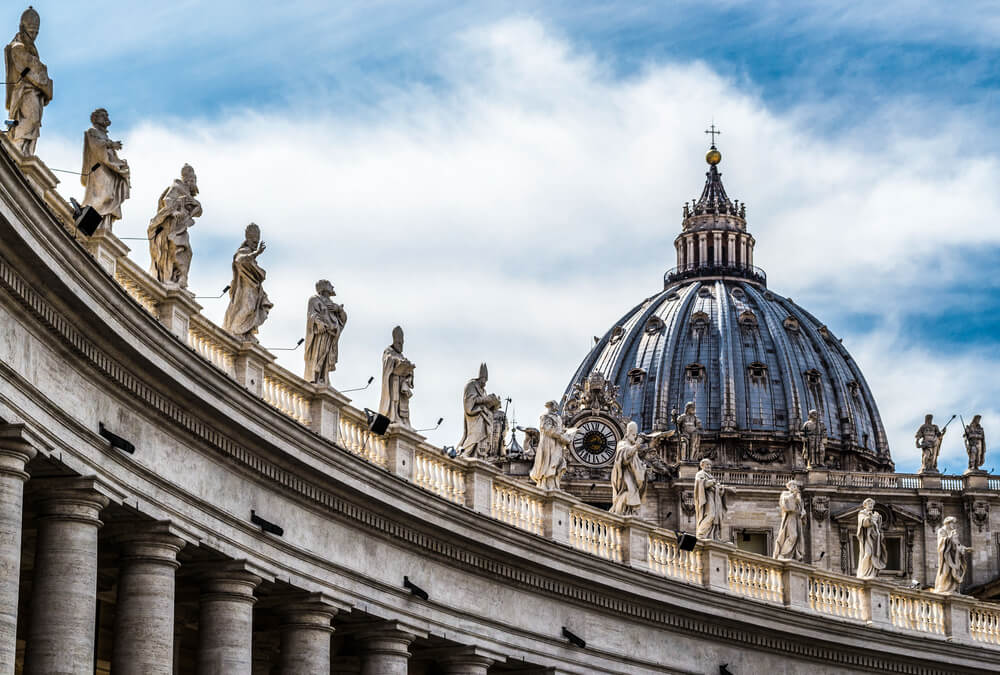Yesterday the Vatican released a revision of the Catechism of the Catholic Church regarding the death penalty. Previously, the Church’s teaching did not exclude recourse to the death penalty if it was the only possible way of effectively defending human lives against an unjust aggressor.
The revision states in paragraph 2267 of the Catechism of the Catholic Church:
Recourse to the death penalty on the part of legitimate authority, following a fair trial, was long considered an appropriate response to the gravity of certain crimes and an acceptable, albeit extreme, means of safeguarding the common good.Today, however, there is an increasing awareness that the dignity of the person is not lost even after the commission of very serious crimes. In addition, a new understanding has emerged of the significance of penal sanctions imposed by the state. Lastly, more effective systems of detention have been developed, which ensure the due protection of citizens but, at the same time, do not definitively deprive the guilty of the possibility of redemption.
Consequently, the Church teaches, in the light of the Gospel, that “the death penalty is inadmissible because it is an attack on the inviolability and dignity of the person”,[1] and she works with determination for its abolition worldwide.
Monsignor Stuart Swetland, host of Go Ask Your Father™ and Chief Religion Correspondent for Relevant Radio®, stopped by The Drew Mariani Show™ to discuss this revision to the Catechism and why the Church has changed its teaching on the death penalty. Monsignor Swetland said:
“This is an authentic Magisterial act by the Bishop of Rome to amend the Catechism, which John Paul II said is a sure norm of the Faith, to reflect this development of doctrine.
Now, he’s not the first to say this. Remember, John Paul II moved the needle on this almost to this point, he got right up to it in his personal theological reflection.
For example, in St. Louis when he was here in the United States in 1999, he said in his homily, ‘I renew the appeal I made most recently, at Christmas, for a consensus to end the death penalty, which is both cruel and unnecessary.
So in his personal theological reflections, St. John Paul II, I believe, had gone that next step. But he wasn’t going to impose that on everybody at that stage.
The Congregation for the Doctrine of the Faith, in its complementary letter to the bishops of the world that went along with the revision to 2267 of the Catechism quoted that, along with the teaching of Benedict XVI and other things where John Paul II said things about the death penalty, to say this has been the consistent movement of the last three popes.
And specifically what I find affirming, at least to my own theological reflection, is that he did go the next step in saying that every use of the death penalty, the reason it’s inadmissible, is because it is an attack on the dignity of the person.
Now, the way I put that in my own theological teaching is that we can never intend death. We can never attack the good of human life directly. And that distinguishes things like the death penalty, abortion, euthanasia from times when deadly force can be used as we accept any harm that comes to an assailant as a consequence as an otherwise upright act.
So, the example I have used is a police officer defending true innocents against an attacker. They don’t intend the death of the attacker, they just want the attacker stopped. And proof of this is as soon as the attacker is stopped they are doing everything they can to keep that attacker alive. But in the death penalty you have to intend death.
That is what the pope is saying today. The death penalty is inadmissible because it is an attack on the dignity of the person.”
Listen to the full conversation, and listen to Drew and Monsignor Swetland respond to listener calls in the podcast of The Drew Mariani Show.


